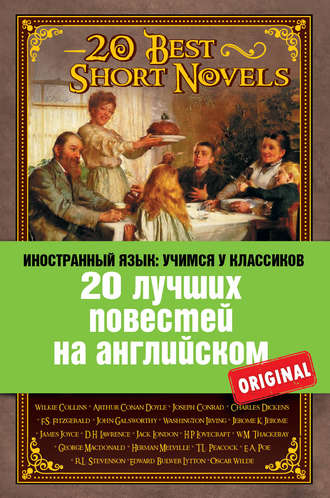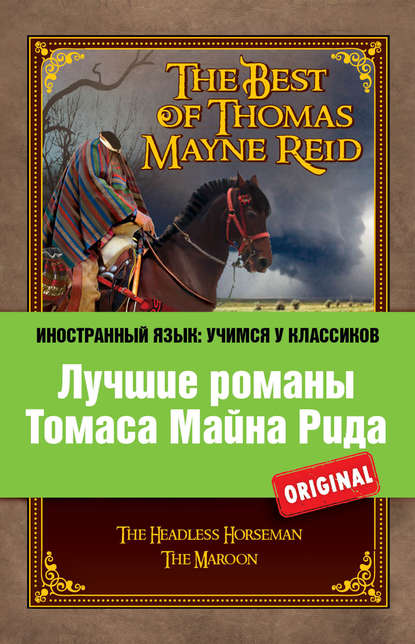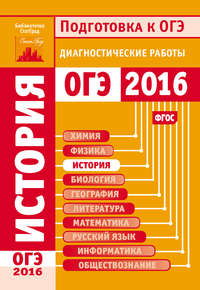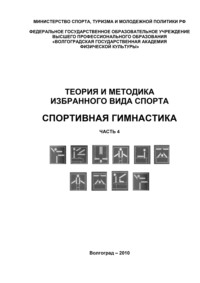
Полная версия
20 лучших повестей на английском / 20 Best Short Novels
‘Poor fool! If he had only left that shutter alone. He had no restraint, no restraint – just like Kurtz – a tree swayed by the wind. As soon as I had put on a dry pair of slippers, I dragged him out, after first jerking the spear out of his side, which operation I confess I performed with my eyes shut tight. His heels leaped together over the little doorstep; his shoulders were pressed to my breast; I hugged him from behind desperately. Oh! he was heavy, heavy; heavier than any man on earth, I should imagine. Then without more ado I tipped him overboard. The current snatched him as though he had been a wisp of grass, and I saw the body roll over twice before I lost sight of it for ever. All the pilgrims and the manager were then congregated on the awning-deck about the pilot-house, chattering at each other like a flock of excited magpies, and there was a scandalized murmur at my heartless promptitude. What they wanted to keep that body hanging about for I can’t guess. Embalm it, maybe. But I had also heard another, and a very ominous, murmur on the deck below. My friends the wood-cutters were likewise scandalized, and with a better show of reason – though I admit that the reason itself was quite inadmissible. Oh, quite! I had made up my mind that if my late helmsman was to be eaten, the fishes alone should have him. He had been a very second-rate helmsman while alive, but now he was dead he might have become a first-class temptation, and possibly cause some startling trouble. Besides, I was anxious to take the wheel, the man in pink pyjamas showing himself a hopeless duffer at the business.
‘This I did directly the simple funeral was over. We were going half-speed, keeping right in the middle of the stream, and I listened to the talk about me. They had given up Kurtz, they had given up the station; Kurtz was dead, and the station had been burnt – and so on – and so on. The red-haired pilgrim was beside himself with the thought that at least this poor Kurtz had been properly avenged. “Say! We must have made a glorious slaughter of them in the bush. Eh? What do you think? Say?” He positively danced, the bloodthirsty little gingery beggar. And he had nearly fainted when he saw the wounded man! I could not help saying, “You made a glorious lot of smoke, anyhow.” I had seen, from the way the tops of the bushes rustled and flew, that almost all the shots had gone too high. You can’t hit anything unless you take aim and fire from the shoulder; but these chaps fired from the hip with their eyes shut. The retreat, I maintained – and I was right – was caused by the screeching of the steam whistle. Upon this they forgot Kurtz, and began to howl at me with indignant protests.
‘The manager stood by the wheel murmuring confidentially about the necessity of getting well away down the river before dark at all events, when I saw in the distance a clearing on the riverside and the outlines of some sort of building. “What’s this?” I asked. He clapped his hands in wonder. “The station!” he cried. I edged in at once, still going half-speed.
‘Through my glasses I saw the slope of a hill interspersed with rare trees and perfectly free from undergrowth. A long decaying building on the summit was half buried in the high grass; the large holes in the peaked roof gaped black from afar; the jungle and the woods made a background. There was no enclosure or fence of any kind; but there had been one apparently, for near the house half-a-dozen slim posts remained in a row, roughly trimmed, and with their upper ends ornamented with round carved balls. The rails, or whatever there had been between, had disappeared. Of course the forest surrounded all that. The river-bank was clear, and on the waterside I saw a white man under a hat like a cart-wheel beckoning persistently with his whole arm. Examining the edge of the forest above and below, I was almost certain I could see movements – human forms gliding here and there. I steamed past prudently, then stopped the engines and let her drift down. The man on the shore began to shout, urging us to land. “We have been attacked,” screamed the manager. “I know – I know. It’s all right,” yelled back the other, as cheerful as you please. “Come along. It’s all right. I am glad.”
‘His aspect reminded me of something I had seen – something funny I had seen somewhere. As I manoeuvred to get alongside, I was asking myself, “What does this fellow look like?” Suddenly I got it. He looked like a harlequin[183]. His clothes had been made of some stuff that was brown holland[184] probably, but it was covered with patches all over, with bright patches, blue, red, and yellow – patches on the back, patches on the front, patches on elbows, on knees; coloured binding around his jacket, scarlet edging at the bottom of his trousers; and the sunshine made him look extremely gay and wonderfully neat withal, because you could see how beautifully all this patching had been done. A beardless, boyish face, very fair, no features to speak of, nose peeling, little blue eyes, smiles and frowns chasing each other over that open countenance like sunshine and shadow on a wind-swept plain. “Look out, captain!” he cried; “there’s a snag lodged in here last night.” What! Another snag? I confess I swore shamefully. I had nearly holed my cripple, to finish off that charming trip. The harlequin on the bank turned his little pug-nose up to me. “You English?” he asked, all smiles. “Are you?” I shouted from the wheel. The smiles vanished, and he shook his head as if sorry for my disappointment. Then he brightened up. “Never mind!” he cried encouragingly. “Are we in time?” I asked. “He is up there,” he replied, with a toss of the head up the hill, and becoming gloomy all of a sudden. His face was like the autumn sky, overcast one moment and bright the next.
‘When the manager, escorted by the pilgrims, all of them armed to the teeth, had gone to the house this chap came on board. “I say, I don’t like this. These natives are in the bush,” I said. He assured me earnestly it was all right. “They are simple people,” he added; “well, I am glad you came. It took me all my time to keep them off.” “But you said it was all right,” I cried. “Oh, they meant no harm,” he said; and as I stared he corrected himself, “Not exactly.” Then vivaciously, “My faith, your pilot-house wants a clean-up!” In the next breath he advised me to keep enough steam on the boiler to blow the whistle in case of any trouble. “One good screech will do more for you than all your rifles. They are simple people,” he repeated. He rattled away at such a rate he quite overwhelmed me. He seemed to be trying to make up for lots of silence, and actually hinted, laughing, that such was the case. “Don’t you talk with Mr. Kurtz?” I said. “You don’t talk with that man – you listen to him,” he exclaimed with severe exaltation. “But now —” He waved his arm, and in the twinkling of an eye was in the uttermost depths of despondency. In a moment he came up again with a jump, possessed himself of both my hands, shook them continuously, while he gabbled: “Brother sailor . . . honour . . . pleasure . . . delight . . . introduce myself . . . Russian . . . son of an arch-priest . . . Government of Tambov . . . What? Tobacco! English tobacco; the excellent English tobacco! Now, that’s brotherly. Smoke? Where’s a sailor that does not smoke?”
‘The pipe soothed him, and gradually I made out he had run away from school, had gone to sea in a Russian ship; ran away again; served some time in English ships; was now reconciled with the arch-priest. He made a point of that. “But when one is young one must see things, gather experience, ideas; enlarge the mind.” “Here!” I interrupted. “You can never tell! Here I met Mr. Kurtz,” he said, youthfully solemn and reproachful. I held my tongue after that. It appears he had persuaded a Dutch trading-house on the coast to fit him out with stores and goods, and had started for the interior with a light heart and no more idea of what would happen to him than a baby. He had been wandering about that river for nearly two years alone, cut off from everybody and everything. “I am not so young as I look. I am twenty-five,” he said. “At first old Van Shuyten would tell me to go to the devil,” he narrated with keen enjoyment; “but I stuck to him, and talked and talked, till at last he got afraid I would talk the hind-leg off his favourite dog, so he gave me some cheap things and a few guns, and told me he hoped he would never see my face again. Good old Dutchman, Van Shuyten. I’ve sent him one small lot of ivory a year ago, so that he can’t call me a little thief when I get back. I hope he got it. And for the rest I don’t care. I had some wood stacked for you. That was my old house. Did you see?”
‘I gave him Towson’s book. He made as though he would kiss me, but restrained himself. “The only book I had left, and I thought I had lost it,” he said, looking at it ecstatically. “So many accidents happen to a man going about alone, you know. Canoes[185] get upset sometimes —and sometimes you’ve got to clear out so quick when the people get angry.” He thumbed the pages. “You made notes in Russian?” I asked. He nodded. “I thought they were written in cipher,” I said. He laughed, then became serious. “I had lots of trouble to keep these people off,” he said. “Did they want to kill you?” I asked. “Oh, no!” he cried, and checked himself. “Why did they attack us?” I pursued. He hesitated, then said shamefacedly, “They don’t want him to go.” “Don’t they?” I said curiously. He nodded a nod full of mystery and wisdom. “I tell you,” he cried, “this man has enlarged my mind.” He opened his arms wide, staring at me with his little blue eyes that were perfectly round.’
III
‘I looked at him, lost in astonishment. There he was before me, in motley, as though he had absconded from a troupe of mimes, enthusiastic, fabulous. His very existence was improbable, inexplicable, and altogether bewildering. He was an insoluble problem. It was inconceivable how he had existed, how he had succeeded in getting so far, how he had managed to remain – why he did not instantly disappear. “I went a little farther,” he said, “then still a little farther – till I had gone so far that I don’t know how I’ll ever get back. Never mind. Plenty time. I can manage. You take Kurtz away quick – quick – I tell you.” The glamour of youth enveloped his parti-coloured rags, his destitution, his loneliness, the essential desolation of his futile wanderings. For months – for years – his life hadn’t been worth a day’s purchase; and there he was gallantly, thoughtlessly alive, to all appearances indestructible solely by the virtue of his few years and of his unreflecting audacity. I was seduced into something like admiration – like envy. Glamour urged him on, glamour kept him unscathed. He surely wanted nothing from the wilderness but space to breathe in and to push on through. His need was to exist, and to move onwards at the greatest possible risk, and with a maximum of privation. If the absolutely pure, uncalculating, unpractical spirit of adventure had ever ruled a human being, it ruled this bepatched youth. I almost envied him the possession of this modest and clear flame. It seemed to have consumed all thought of self so completely, that even while he was talking to you, you forgot that it was he – the man before your eyes – who had gone through these things. I did not envy his devotion to Kurtz, though. He had not meditated over it. It came to him, and he accepted it with a sort of eager fatalism. I must say that to me it appeared about the most dangerous thing in every way he had come upon so far.
‘They had come together unavoidably, like two ships becalmed near each other, and lay rubbing sides at last. I suppose Kurtz wanted an audience, because on a certain occasion, when encamped in the forest, they had talked all night, or more probably Kurtz had talked. “We talked of everything,” he said, quite transported at the recollection. “I forgot there was such a thing as sleep. The night did not seem to last an hour. Everything! Everything! . . . Of love, too.” “Ah, he talked to you of love!” I said, much amused. “It isn’t what you think,” he cried, almost passionately. “It was in general. He made me see things – things.”
‘He threw his arms up. We were on deck at the time, and the headman of my wood-cutters, lounging near by, turned upon him his heavy and glittering eyes. I looked around, and I don’t know why, but I assure you that never, never before, did this land, this river, this jungle, the very arch of this blazing sky, appear to me so hopeless and so dark, so impenetrable to human thought, so pitiless to human weakness. “And, ever since, you have been with him, of course?” I said.
‘On the contrary. It appears their intercourse had been very much broken by various causes. He had, as he informed me proudly, managed to nurse Kurtz through two illnesses (he alluded to it as you would to some risky feat), but as a rule Kurtz wandered alone, far in the depths of the forest. “Very often coming to this station, I had to wait days and days before he would turn up,” he said. “Ah, it was worth waiting for! – sometimes.” “What was he doing? exploring or what?” I asked. “Oh, yes, of course”; he had discovered lots of villages, a lake, too – he did not know exactly in what direction; it was dangerous to inquire too much – but mostly his expeditions had been for ivory. “But he had no goods to trade with by that time,” I objected. “There’s a good lot of cartridges left even yet,” he answered, looking away. “To speak plainly, he raided the country,” I said. He nodded. “Not alone, surely!” He muttered something about the villages round that lake. “Kurtz got the tribe to follow him, did he?” I suggested. He fidgeted a little. “They adored him,” he said. The tone of these words was so extraordinary that I looked at him searchingly. It was curious to see his mingled eagerness and reluctance to speak of Kurtz. The man filled his life, occupied his thoughts, swayed his emotions. “What can you expect?” he burst out; “he came to them with thunder and lightning, you know – and they had never seen anything like it – and very terrible. He could be very terrible. You can’t judge Mr. Kurtz as you would an ordinary man. No, no, no! Now – just to give you an idea – I don’t mind telling you, he wanted to shoot me, too, one day – but I don’t judge him.” “Shoot you!” I cried “What for?” “Well, I had a small lot of ivory the chief of that village near my house gave me. You see I used to shoot game for them. Well, he wanted it, and wouldn’t hear reason. He declared he would shoot me unless I gave him the ivory and then cleared out of the country, because he could do so, and had a fancy for it, and there was nothing on earth to prevent him killing whom he jolly well pleased. And it was true, too. I gave him the ivory. What did I care! But I didn’t clear out. No, no. I couldn’t leave him. I had to be careful, of course, till we got friendly again for a time. He had his second illness then. Afterwards I had to keep out of the way; but I didn’t mind. He was living for the most part in those villages on the lake. When he came down to the river, sometimes he would take to me, and sometimes it was better for me to be careful. This man suffered too much. He hated all this, and somehow he couldn’t get away. When I had a chance I begged him to try and leave while there was time; I offered to go back with him. And he would say yes, and then he would remain; go off on another ivory hunt; disappear for weeks; forget himself amongst these people – forget himself – you know.” “Why! he’s mad,” I said. He protested indignantly. Mr. Kurtz couldn’t be mad. If I had heard him talk, only two days ago, I wouldn’t dare hint at such a thing. . . . I had taken up my binoculars while we talked, and was looking at the shore, sweeping the limit of the forest at each side and at the back of the house. The consciousness of there being people in that bush, so silent, so quiet – as silent and quiet as the ruined house on the hill – made me uneasy. There was no sign on the face of nature of this amazing tale that was not so much told as suggested to me in desolate exclamations, completed by shrugs, in interrupted phrases, in hints ending in deep sighs. The woods were unmoved, like a mask – heavy, like the closed door of a prison – they looked with their air of hidden knowledge, of patient expectation, of unapproachable silence. The Russian was explaining to me that it was only lately that Mr. Kurtz had come down to the river, bringing along with him all the fighting men of that lake tribe. He had been absent for several months – getting himself adored, I suppose – and had come down unexpectedly, with the intention to all appearance of making a raid either across the river or down stream. Evidently the appetite for more ivory had got the better of the – what shall I say? – less material aspirations. However he had got much worse suddenly. “I heard he was lying helpless, and so I came up – took my chance,” said the Russian. “Oh, he is bad, very bad.” I directed my glass to the house. There were no signs of life, but there was the ruined roof, the long mud wall peeping above the grass, with three little square window-holes, no two of the same size; all this brought within reach of my hand, as it were. And then I made a brusque movement, and one of the remaining posts of that vanished fence leaped up in the field of my glass. You remember I told you I had been struck at the distance by certain attempts at ornamentation, rather remarkable in the ruinous aspect of the place. Now I had suddenly a nearer view, and its first result was to make me throw my head back as if before a blow. Then I went carefully from post to post with my glass, and I saw my mistake. These round knobs were not ornamental but symbolic; they were expressive and puzzling, striking and disturbing – food for thought and also for vultures if there had been any looking down from the sky; but at all events for such ants as were industrious enough to ascend the pole. They would have been even more impressive, those heads on the stakes, if their faces had not been turned to the house. Only one, the first I had made out, was facing my way. I was not so shocked as you may think. The start back I had given was really nothing but a movement of surprise. I had expected to see a knob of wood there, you know. I returned deliberately to the first I had seen – and there it was, black, dried, sunken, with closed eyelids – a head that seemed to sleep at the top of that pole, and, with the shrunken dry lips showing a narrow white line of the teeth, was smiling, too, smiling continuously at some endless and jocose dream of that eternal slumber.
Конец ознакомительного фрагмента.
Текст предоставлен ООО «ЛитРес».
Прочитайте эту книгу целиком, купив полную легальную версию на ЛитРес.
Безопасно оплатить книгу можно банковской картой Visa, MasterCard, Maestro, со счета мобильного телефона, с платежного терминала, в салоне МТС или Связной, через PayPal, WebMoney, Яндекс.Деньги, QIWI Кошелек, бонусными картами или другим удобным Вам способом.
Примечания
1
Oxford Street – one of the main streets in central London, a shopping centre of London
2
pot-boy – a boy who works in a pub
3
phenomena – pl. from phenomenon – an unusual or remarkable thing, event, person, etc.
4
coroner – an official who investigates the cause of death if the circumstances of it seem unnatural
5
the Company – the East India Company formed in 1600 for the development of trade with India and Southeast Asia; later the Company became involved in politics as a British agent in the region
6
bureau – a writing desk with drawers
7
Macaulay – Thomas Bebington Macaulay (1800–1859); an English politician, historian and essayist; he is best known for his ‘History of England’
8
jugglers – persons who perform tricks to amuse people
9
attics – an attic is a space under the roof of the house
10
balusters – construction details supporting a handrail
11
hydrophobia – strong fear of water
12
medium – a person who is able to receive information from the spirits of the dead
13
mesmerizm – a sort of hypnotism; named after Franz Mesmer (1734–1815) who was the first to use hypnotic trance in medical treatment
14
mesmerize = hypnotize
15
mesmerizer = hypnotizer
16
Will-o’-the Wisp – a meteorological effect, a mysterious light seen over marshes due to ignition of methane, produced by the decomposition of plants
17
simulacra – pl. from simulacrum – shadowy likeness that is deceiving
18
phantasm – a phantom
19
phantom – a ghost, or smth. seen in a vision
20
larvae – insects in the first stage of their life cycle
21
Liverpool – a city and port in the historic county of Lancashire in northwestern England
22
Melbourne – an important city and port on the southeastern coast of Australia
23
Walworth – a historic village in Southwark, an inner borough of London; a borough is an incorporated town or district with special privileges.
24
mesmeric – hypnotic
25
rapport = relationship
26
en rapport = in close relationship
27
Paracelsus (1493–15410) – a Swiss doctor and alchemist who was the first to widely use the achievements of chemistry for treating patients
28
eidolon – a ghost or phantom (Greek)
29
Bacon – Francis Bacon (1561–1626), a famous English philosopher, statesman, essayist and speaker
30
Plato (428 BC–348 BC) – an ancient Greek philosopher, founder of the Academy; he was the pupil of Socrates and the teacher of Aristotle.
31
the Almighty = God
32
crotchet – a strange and unreasonable idea
33
hobgoblins – in English and Scottish folklore, small malicious fairies which inhabit houses, mislead travelers, frighten people, spoil things, etc.
34
pentacle – a magic geometrical figure
35
vellum – parchment
36
anathema – a formal declaration of the Church condemning smb. or smth.; a curse
37
Somersetshire – a historic county in the southwest of England
38
Methodist – a member of the Methodist Church which separated from the Church of England in the 18th century and later developed into an autonomous church
39
chaise – a low carriage with two or four wheels
40
Cambridgeshire – a historic county in eastern England
41
brogue – a local way of speaking English; a dialect
42
was dead against smth. = was strongly against smth.














